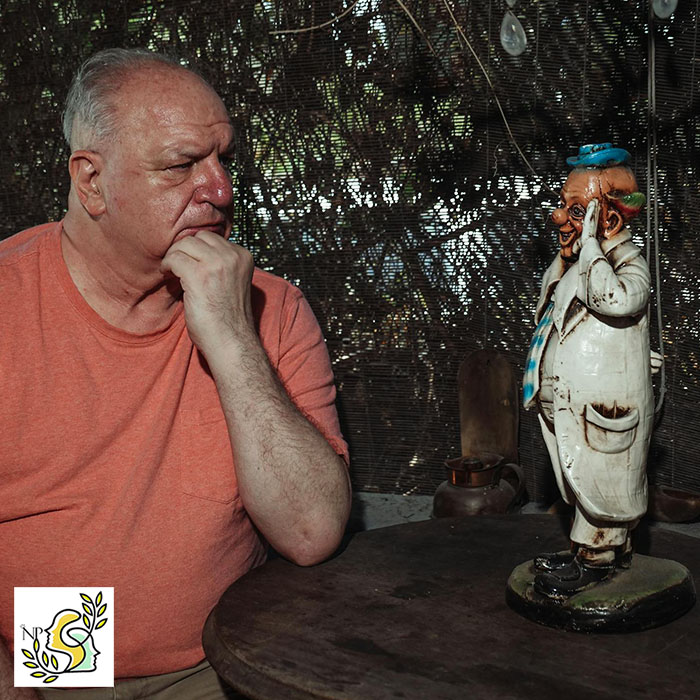Introduction: Dementia is a progressive neurodegenerative disorder marked by cognitive decline, memory loss, and behavioral changes. While some symptoms are well-known, others—such as paranoia, excessive sleepiness, hoarding, or mispronouncing words—are less recognized, leading to uncertainty among caregivers and the public. This essay aims to address the top 15 most frequently asked questions about dementia symptoms, clarifying misconceptions, distinguishing between normal aging and cognitive decline, and examining lesser-known signs like tinnitus, insomnia, and nightmares. By providing evidence-based insights, we seek to enhance awareness, support early recognition, and promote informed discussions about dementia and its diverse manifestations.
What is Dementia?

Dementia is a progressive neurological disorder characterized by a decline in cognitive abilities beyond what is expected with normal aging. It primarily affects memory, language, attention, orientation, judgment, and planning, significantly impairing daily functioning. Dementia can lead to walking problems, including difficulty with balance, coordination, and gait, which increases the risk of falls in affected individuals. While aging is a major risk factor, dementia is not an inevitable consequence of growing older. The condition typically manifests in individuals in their seventh or eighth decade of life and worsens over time.
Dementia impacts various aspects of cognition, mood, and behavior, leading to changes in thinking, emotional regulation, and social interactions. Although it can occur at any age, it is far more prevalent in individuals over 65. Currently, there is no known cure for dementia; however, treatments can help manage symptoms, and various forms of support are available to improve the quality of life for affected individuals. Many caregivers find it helpful to use printable dementia activities and cognitive activities for seniors to engage their loved ones and stimulate mental function. Research indicates that games can be an effective strategy for stimulating cognitive function and improving quality of life in individuals with dementia.
Common Symptoms & Signs of Dementia
Dementia is a progressive neurodegenerative disorder characterized by a significant decline in cognitive function, affecting memory, reasoning, language, and behavior. While mild cognitive changes are a normal part of aging, individuals with dementia experience a more profound and accelerating deterioration due to extensive neuronal loss. The symptoms of dementia can vary based on the type and stage of the disease, but they typically interfere with daily life and independence. Common Symptoms of Dementia:
- Cognitive Symptoms:
- Memory loss
- Difficulty concentrating
- Poor judgment and confusion
- Difficulty speaking, understanding, or expressing thoughts
- Inability to recognize familiar people or objects
- Disorientation, particularly in the evening hours
- Behavioral Symptoms:
- Personality changes
- Restlessness and irritability
- Wandering and getting lost
- Lack of restraint
- Mood-Related Symptoms:
- Anxiety and nervousness
- Mood swings
- Feelings of loneliness
- Psychological Symptoms:
- Depression
- Hallucinations
- Paranoia
- Muscular and Physical Symptoms:
- Difficulty coordinating movements
- Unsteady walking
- Increased risk of falls
- Other Common Symptoms:
- Jumbled speech
- Sleep disturbances
Top 15 Questions Asked About the Signs of Dementia

Raising dementia awareness is crucial for promoting early detection, improving care, and reducing the stigma associated with the condition. When discussing the signs of dementia, many questions arise, as the condition manifests in diverse and often subtle ways. Common inquiries include whether someone living with dementia can still sign legal documents, as cognitive impairment may affect decision-making capacity. Additionally, physical signs such as a mouth hanging open, excessive sleepiness, or even humming might be linked to dementia, though they can also result from other conditions. Behavioral changes, such as paranoia, self-mutilation, or hoarding, are often concerning and may indicate cognitive decline, while mispronouncing words or failing to blink regularly can signal memory or motor control difficulties.
Other symptoms, like leaving cupboard doors open or experiencing nightmares and insomnia, may also be early signs of dementia. Excessive sleep or tinnitus might not always be directly related to dementia, but they can be linked to the disorder’s progression. Ultimately, while these questions help clarify the signs of dementia, it’s crucial to remember that a proper diagnosis requires professional evaluation, as the symptoms can overlap with other health issues.
Can someone with dementia sign legal documents?
In legal and medical contexts, individuals diagnosed with dementia may still retain the capacity to sign legal documents, including contracts and power of attorney designations, provided they demonstrate an understanding of the document’s purpose, implications, and outcomes. The ability to make financial or legal decisions remains a fundamental right for all adults until they are deemed legally incapacitated. A dementia diagnosis alone does not inherently strip an individual of decision-making abilities; rather, a thorough assessment is necessary to evaluate their cognitive capacity and determine whether they can make informed choices without undue influence.
Is mouth hanging open a sign of dementia?
Aging and dementia can impact oral muscle control, leading to increased mouth opening. In healthy aging, this may serve as a compensatory mechanism, while in dementia, neurological decline disrupts facial motor function, causing difficulty in keeping the mouth closed. Involuntary chewing, cognitive decline, and poor-fitting dentures further contribute to this issue. Understanding these factors is crucial for improving oral function and comfort in older adults, particularly those with dementia.
Is paranoia a sign of dementia?
Delusions, which are strongly held false beliefs, are a frequent symptom in individuals with dementia. These delusions often manifest as paranoia, where the person feels threatened by others despite little or no real justification. Due to the cognitive impairments associated with dementia, individuals may become suspicious of those around them, believing, for instance, that loved ones are attempting to harm them or that items are being stolen. This occurs because dementia disrupts the brain’s ability to correctly integrate and interpret information and memories, leading the person to draw erroneous conclusions and form beliefs that are not grounded in reality.
Is self-mutilation a symptom of dementia?
Men living with dementia were more likely to self-harm than women. People living with dementia with poor mental health are more likely to self-harm. Self-harm in older people may indicate undiagnosed or prodromal dementia. Mental health supports are needed shortly after a dementia diagnosis.
Is humming a sign of dementia?
Humming, while not a definitive indicator of dementia, can be a repetitive behavior associated with certain neurodegenerative disorders, particularly frontotemporal dementia and Alzheimer’s disease. Repetitive vocalizations, including humming, may serve as a coping mechanism for individuals experiencing cognitive decline, providing self-soothing effects in response to anxiety, fear, or a perceived loss of control. In dementia, compulsive behaviors, including humming, may emerge as the disease progresses, potentially reflecting underlying neurological changes that influence impulse control and emotional regulation.
Is not blinking a sign of dementia?
Reduced blinking frequency is observed in certain neurodegenerative disorders, particularly in Lewy body dementia and Parkinson’s disease-related dementia. However, it is not a definitive diagnostic marker, as various factors can contribute to infrequent or incomplete blinking. In Parkinson’s dementia, motor dysfunction affects eye movement and significantly reduces the blink rate from the typical 16–18 blinks per minute to as few as 1–2 blinks per minute. This reduction can lead to chronic dry eye and irritation, necessitating the use of artificial tears to maintain ocular health.
Is leaving cupboard doors open a sign of dementia?
Persistent forgetfulness and disorganization can be early indicators of cognitive decline, particularly in individuals who previously exhibited structured behavior. One common sign associated with dementia, particularly Alzheimer’s disease, is the repeated failure to complete simple tasks, such as closing cupboard doors, locking the house, or turning off appliances. These lapses may initially seem like distractions but can progressively signify memory impairment.
These behavioral changes, while sometimes attributed to momentary distraction, should be carefully monitored when persistent. They may serve as early warning signs of neurodegenerative conditions, warranting further assessment for timely intervention.
Is mispronouncing words a sign of dementia?
Language impairments, including difficulty finding the right words, mispronouncing words, or struggling to construct sentences, can be indicative of neurodegenerative conditions such as dementia. Aphasia, a language disorder resulting from brain damage or degeneration, commonly affects individuals with dementia, making it challenging for them to speak, read, or write. People with aphasia may have difficulty naming objects, comprehending spoken language, or forming coherent sentences.
While gradual language deterioration is common in dementia, sudden speech impairments, such as abrupt difficulty pronouncing words or forming coherent sentences, may indicate an acute neurological event, such as a stroke. In such cases, immediate medical evaluation is necessary to determine the underlying cause and initiate appropriate intervention.
Is sleeping a lot a sign of dementia?
Individuals with dementia, particularly in the advanced stages, may spend significant amounts of time sleeping due to the brain’s diminishing ability to sustain normal wakefulness and activity. The progressive weakening of the body and cognitive functions contributes to a decline in energy levels, leading to increased daytime sleep. While excessive sleep can be a natural consequence of neurodegeneration, it is essential to consider other potential factors, such as underlying health conditions, before attributing it solely to dementia. Proper assessment and medical evaluation can help determine the cause and provide appropriate care strategies.
Is hoarding a sign of dementia?
Although hoarding disorder is a distinct mental health condition often associated with obsessive-compulsive disorder (OCD), anxiety, depression, and attention-deficit/hyperactivity disorder (ADHD), its occurrence in dementia is linked to progressive cognitive deterioration. Recognizing hoarding behavior as a potential early sign of dementia is essential for timely intervention and management, ensuring a safer and more organized living environment for affected individuals.
Individuals with dementia often experience impairments in memory, impulse control, and judgment, which may lead to difficulty discarding items and an excessive accumulation of possessions. This behavior is often driven by anxiety and a perceived need to retain objects, even those of little to no value.
Is excessive sleepiness a sign of dementia?
Excessive sleepiness, or hypersomnia, is a phenomenon influenced by various factors, including sleep disorders, medical conditions, psychiatric issues, and medication side effects. However, emerging research suggests that prolonged sleep duration may also serve as an early indicator of dementia. A study conducted in the United States indicates that individuals experiencing a shift toward extended sleep periods could be in the early stages of cognitive decline.
While excessive sleeping is commonly associated with later-stage dementia, it can also manifest in the early progression of certain types, such as vascular dementia or dementia with Lewy bodies. In these cases, disrupted neural pathways regulating sleep-wake cycles may contribute to increased sleep duration. Distinguishing pathological hypersomnia from normal variations in sleep patterns is crucial for early diagnosis and intervention, emphasizing the need for further investigation into sleep disturbances as potential biomarkers for dementia.
Is tinnitus a sign of dementia?
While tinnitus, or ringing in the ears, is not a definitive symptom of dementia, emerging research suggests a potential association between chronic tinnitus and an increased risk of developing early-onset dementia, particularly in individuals under the age of 65. The frequent co-occurrence of tinnitus with neurological disorders indicates that it may serve as an early marker of central nervous system (CNS) dysfunction. This association underscores the need for comprehensive neurological evaluation in individuals experiencing persistent tinnitus, regardless of its severity or character.
Are nightmares a sign of dementia?
Nightmares can often reflect underlying mental or physical health issues, including heightened stress and anxiety. Their persistent presence may indicate disruptions in neural pathways related to memory and emotional regulation. Although they are not definitive predictors of neurodegeneration, their correlation with dementia risk highlights the importance of monitoring sleep disturbances as part of cognitive health assessments. Recent research suggests that frequent distressing dreams, including nightmares, may serve as an early indicator or modifiable risk factor for neurodegenerative conditions such as dementia and Parkinson’s disease (PD).
Is insomnia a sign of dementia?
Sleep disturbances, including insomnia and excessive daytime sleepiness, are common in individuals with dementia and may serve as early indicators of cognitive decline, particularly in Alzheimer’s disease. Disruptions in the brain’s sleep-wake cycle contribute to these irregularities, leading to difficulties in falling and staying asleep.
As dementia progresses, sleep disturbances often worsen, further impairing cognitive function and overall well-being. Given the strong correlation between sleep disruptions and neurodegeneration, monitoring and managing sleep patterns could play a crucial role in early detection and intervention strategies for Alzheimer’s disease.
Does Joe Biden have dementia?
There is no official diagnosis of dementia for Joe Biden. However, concerns about his cognitive health grew after a difficult 2024 debate performance. His 2024 physical exam did not include a cognitive test, despite calls for one. Reports suggest White House aides managed his schedule to limit exposure. In July 2024, he withdrew from the election, endorsing Kamala Harris. While speculation persists, no formal assessment confirms dementia.
Frequently Asked Questions
Frequently Asked Questions about dementia.
Should you tell someone they have dementia?
there is no purpose in telling your loved one that they have dementia unless they ask. This can be hard, but if your friend or family member is able to make their own choices, they should be allowed to decide whether they want to know about their diagnosis, even if this is different from what you’d choose.
What not to do with dementia patients?
Try not to talk down to the person: ‘I’ll just help you use your little spoon there, love?’ ‘Elderspeak’ – which can involve talking in a high-pitched voice, using words like ‘love’ or ‘deary’, and generally speaking to the person like they are a child – should be avoided.
What do people with dementia think about?
Instead, they might notice that things are different and difficult ― but they’re not able to explain or understand why. They might even think that everything is normal but that the people around them are acting differently, which can cause anxiety, frustration, and distress.
What stage of dementia is sleeping all the time?
Dementia patients, especially in the later stages, often exhibit increased daytime sleepiness and sleeping more, as the disease progresses and brain function declines, making simple tasks exhausting.
Watch here for more:
Conclusion
In conclusion, addressing the top 15 questions about the signs of dementia provides valuable insight into the complexities of this neurodegenerative condition. From cognitive symptoms like mispronouncing words and paranoia to behavioral signs such as excessive sleepiness or hoarding, these questions highlight the diverse ways dementia manifests. While some signs, such as not blinking or leaving cupboard doors open, may appear as simple lapses in behavior, they can be indicators of underlying cognitive decline. Additionally, questions about legal matters, sleep disturbances like insomnia, and even concerns about public figures like Joe Biden underscore the importance of understanding dementia’s early signs for timely diagnosis and care. By exploring these common queries, we gain a clearer understanding of how dementia affects individuals and how to better support those living with the condition.
Reference:
- https://pubmed.ncbi.nlm.nih.gov/39096926/
- https://pubmed.ncbi.nlm.nih.gov/38963276/
- https://pubmed.ncbi.nlm.nih.gov/38519775/
- https://pubmed.ncbi.nlm.nih.gov/39343475/
- https://pubmed.ncbi.nlm.nih.gov/39265576/
- https://pubmed.ncbi.nlm.nih.gov/39620843/
- https://pubmed.ncbi.nlm.nih.gov/32936544/
- https://journals.sagepub.com/doi/full/10.1177/1471301215626889
- https://www.isca-archive.org/interspeech_2018/mirheidari18_interspeech.pdf
- https://www.aafp.org/pubs/afp/issues/2001/0215/p703.html
- https://onlinelibrary.wiley.com/doi/abs/10.1002/gps.354
- https://www.tandfonline.com/doi/abs/10.1080/13607863.2014.995588
- https://www.proquest.com/openview/ecd3db0385ad256f63abcf01fc491c35/1?cbl=2042228&pq-origsite=gscholar
- https://www.tandfonline.com/doi/abs/10.1111/j.1444-0938.2012.00770.x
- https://karger.com/dti/article-abstract/7/6/331/118438/Symptoms-and-Signs-in-Dementia-Synergy-and
- https://www.tandfonline.com/doi/full/10.31887/DCNS.2000.2.2/jmintzer
- https://academic.oup.com/fampra/article-abstract/15/5/431/536390




